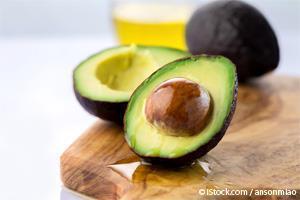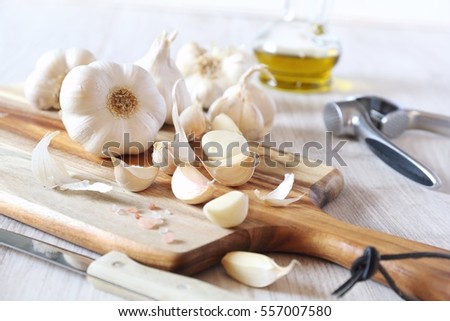 |
Image Credit: media.mercola.com
|
Sometimes people have more than one serious health
complication. If those problems happen to be three or more of the most
prevalent risk factors for heart disease and diabetes, such as high blood
pressure, high triglycerides and a large waistline, they merge into a single
disorder known as metabolic syndrome.
Metabolic syndrome represents one very serious
illness, affecting 40 percent of the U.S. population over age 40.
Scientists from the Charles E. Schmidt College of
Medicine at Florida Atlantic University (FAU), conducting a review of 129
scientific studies on the topic of avocados and metabolic syndrome, now call
this malady "the new silent killer." Dr. Charles H. Hennekens says:

"The
major factor accelerating the pathway to metabolic syndrome is overweight and
obesity. Obesity is overtaking smoking as the leading avoidable cause of premature
death in the U.S. and worldwide."
Parvathi Perumareddi, doctor of osteopathic medicine
and assistant professor of integrated medical science at FAU, explained:
"The
pandemic of obesity, which begins in childhood, is deeply concerning.
Adolescents today are more obese and less physically active than their parents
and already have higher rates of type 2 diabetes.
It is
likely that the current generation of children and adolescents in the U.S. will
be the first since 1960 to have higher mortality rates than their parents due
mainly to cardiovascular disease, including coronary heart disease and
stroke."
It's something you have control over, however. The
review concluded that metabolic syndrome is preventable in most cases using
dietary measures. In fact, the featured study revealed that one way you can
help prevent metabolic syndrome is by eating avocados.
Avocados: 'It Would Be Hard to Eat Too Much'
Here's why registered dietician Cynthia Sass, with
master's degrees in both nutrition science and public health, calls avocados
worthy of superfood status: They can effectively combat nearly every aspect of
metabolic syndrome.
According to Sass, the "impressive range of
studies" the researchers perused also covered the nutritional impact the
firm, velvety flesh of this pear-shaped green-black food, technically a fruit,
can make on several other areas of the body, not just metabolic syndrome
symptoms.
It's possible that more than just the fruit itself
may be good for you; researchers found possible benefits from consuming the
leaves, peels, oil and even the large pit at the center of avocados (although
Sass suggested that sticking to the peeled, pitted flesh would be best until
further studies can be done).
Time online notes that avocados not only help stave
off belly fat — the worst type of fat to carry — but eating them offers such
high amounts of healthy fat compared to other fruits, eating too much would be
very difficult to do. Further, it's versatile and filling, as well, Sass noted:
"Fortunately
avocado is very satiating. It's almost like they have a built-in stop-gap. This
is yet another example of how not all calories are created equal. Avocado
blends well with both sweet and savory ingredients, and provides the
satisfaction factor that makes dishes decadent."
Combine avocados with salsa or fruit chutney to make
guacamole; mash them with a bit of lemon juice, extra virgin olive oil, salt
and pepper for a quick vegetable or pita dip, or a delicious addition to egg
salad. Serve mashed avocado on poached or lightly cooked over-easy eggs or
slice, salt and eat them all by themselves.
The beauty is that it's not just about the
versatility and flavor of avocados; the nutritional profile is incredible.
Additional information from the study about this
plant-based food, Science Daily said, was that they're also
"lipid-lowering, antihypertensive, antidiabetic, anti-obesity,
antithrombotic. antiatherosclerotic and cardioprotective."
Avocados and Cholesterol
If you don't get any other concept about how
avocados can literally change your health, this might move you: The high fat
content in avocados is a good thing — it's not "bad" fat. In fact,
it's good, necessary fat from oleic acid, which is the same monosaturated fatty
acid contained in olive oil.
Oleic acid is associated with decreased
inflammation, which helps stave off such diseases as cancer.
Further, neither avocados nor avocado oil are
hydrogenated or loaded with trans fats or other unhealthy oxidized fats like
most canola, safflower, corn or other vegetable oils you're urged to cook with
may be. Avocado oil can even be drizzled over salads and used in recipes
calling for other oils.
Avocado oil also has a relatively high smoke point
compared to olive oil, making it a better choice for cooking, although coconut
oil is best for that purpose.
While some people remain concerned that eating
high-fat foods like avocados may adversely affect their cholesterol levels, the
opposite is actually true (plus, cholesterol is not the evil it's made out to
be).
According to the review, people who eat avocados
have higher levels of beneficial HDL cholesterol than those who do not. Eating
avocados may also lower triglyceride levels compared to eating high-carb diets
or diets without avocado.
Beneficial Nutrients That Make Up Avocados

The California Avocado Commission reports that
avocados contain about 22.5 grams of fat, and two-thirds of that is
monounsaturated. Other essential nutrients include fiber, vitamins, folic acid,
vitamin E and more potassium than you'd find in a banana.
SELFNutritionData reports that avocado also contains
small amounts of magnesium, manganese, copper, ion, zinc, phosphorous and
vitamins A, B1 (thiamine), B2 (riboflavin) and B3 (niacin). In regard to the
dietary reference intake (DRI), 100 grams (3.5 oz.) of avocado contain:
Vitamin K: 26 percent
|
Folate: 20 percent
|
Vitamin C: 17 percent
|
Potassium: 14 percent
|
Vitamin B5 (Pantothenic acid): 14 percent
|
Vitamin B6: 13 percent
|
Vitamin E: 10 percent
|
Niacin: 9 percent
|
According to Authority Nutrition:
"This
is coming with 160 calories, 2 grams of protein and 15 grams of healthy fats.
Although it contains 9 grams of carbs, 7 of those are fiber so there are only 2
'net' carbs, making this a low-carb friendly plant food."
Avocados for Your Heart, Arthritis, Blood Sugar
Levels and Weight Loss
Research shows several other positive aspects about
avocados: One of the most interesting is that people who eat more of them
generally weigh less and have smaller waistlines than people who don't, even if
their overall caloric consumption is smaller.
The fiber content can also be thanked for this
aspect of avocado consumption. It's both soluble, which amounts to 75 percent,
and insoluble fiber, the former of which is linked to good gut bacteria, which
affects your body's optimal function.
Avocados also were found to be more filling than
other foods. In one study, participants were divided and each half given a meal
to eat, one of which contained avocados.
Afterward, a questionnaire revealed that 23 percent
of those in the avocado group felt more satisfied and had a 28 percent lower
desire to eat within the next five hours.
All these factors are what help make avocados an
incredibly healthy food to add to your diet. One study notes that avocados
contain high amounts of lutein, zeaxanthin and phytosterols, and explains:
"Eight
preliminary avocado cardiovascular health clinical studies (have) consistently
demonstrated positive heart healthy effects on blood lipids profiles.
This is
primarily because of avocado's … monounsaturated fatty acids and
high-unsaturated fatty acids (MUFA and PUFA) content, but its natural
phytosterols and dietary fiber may play potential secondary … roles.
Avocados
also have a diverse range of other nutrients and phytochemicals … In
particular, avocado's potassium and lutein may help promote normal blood
pressure and help to control oxidative/inflammatory stress."
More and More Avocado Advantages
Antioxidants absorption is another important element
to eating this nubby green fruit. In fact, when you add it to salsa or salad,
you'll absorb three to five times more fat-soluble carotenoids because of the
avocado's lipid content. This, in turn, may help protect your body against free
radical damage.
In other words, when you eat carotenoid-rich foods
along with healthy fat avocados, your body becomes better able to absorb more
of their fat-soluble nutrients, such as alpha- and beta-carotenes, as well as
lutein, zeaxanthin and other antioxidants.
The antioxidants have been noted for their prominent
roles in keeping your vision healthy. One study shows the antioxidants protect
your macula, located near the center of your eye where your vision is clearest,
from short-wavelength visible light, and help prevent age-related macular
degeneration as well as cataracts.
Here's another benefit that's very important:
Avocados carry a very light load of chemical pesticide spray residue in
comparison with other plant-based foods, so it's not necessary to try to find
(or grow) organic varieties. They are a fruit, but unlike so many others,
avocados don't contain high levels of fructose. Instead, the healthy fat they
offer rivals that of coconut oil, organic raw butter, and raw nuts such as
pecans and almonds.
Did you know that avocado oil is also good for your
hair and skin? It makes your skin softer and more supple, and renders your hair
smoother and less frizzy and tangled than without it, especially if your hair
is dry. In fact, it has many of the same properties as coconut oil.
Article Source: Dr. Mercola at
http://articles.mercola.com











